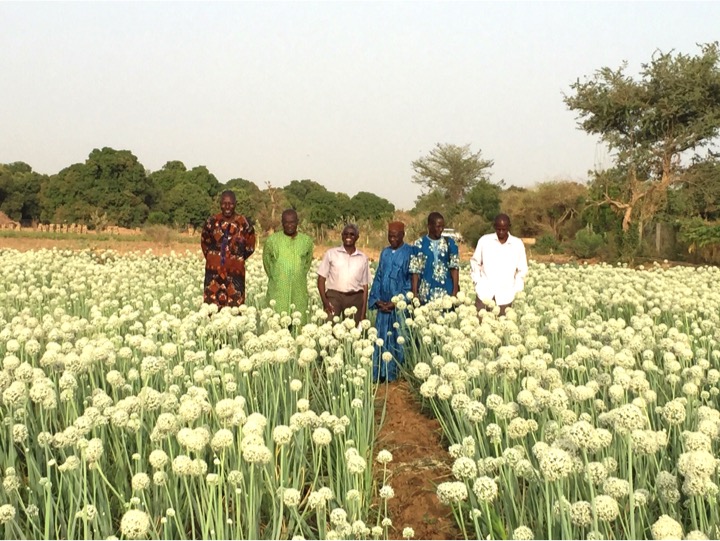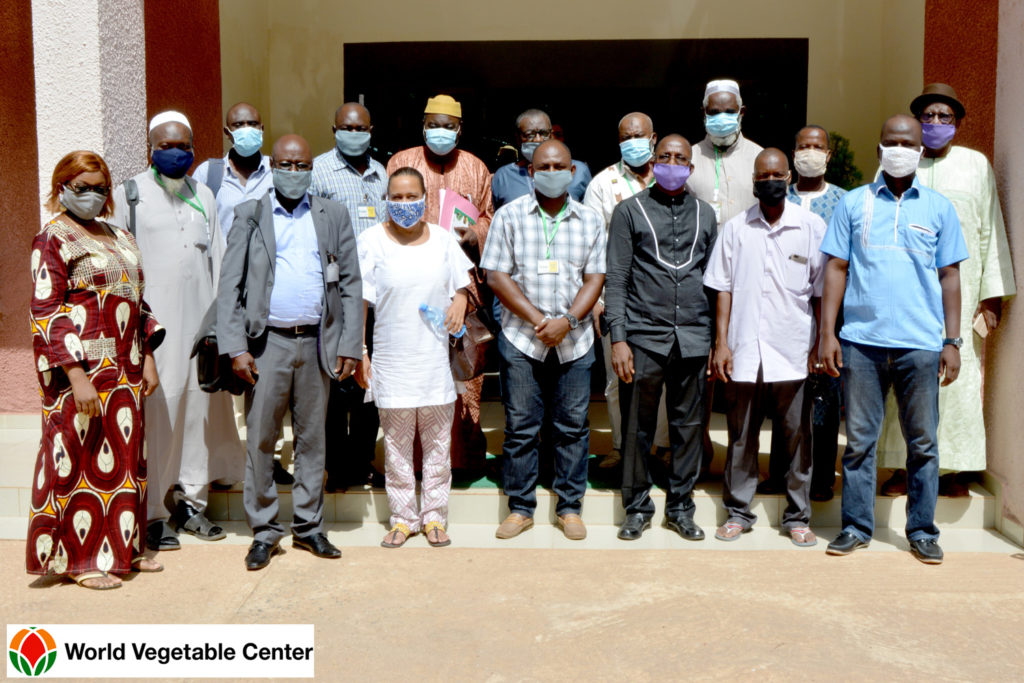by Pepijn Schreinemachers, World Vegetable Center
Vegetable consumption is generally low in sub-Saharan Africa, a factor that affects the health of many Africans. Raising vegetable consumption will benefit the health of consumers, but could also boost the livelihoods of smallholder farmers.
Today, many farmers in Mali produce staple crops, even though producing vegetables is generally more profitable. Yet, vegetable production faces many constraints, including limited access to water as well as poor quality and unavailability of vegetable seeds.
Against this background, the Feed the Future Innovation Lab for Small Scale Irrigation (ILSSI) is partnering with the World Vegetable Center in Mali to develop a more reliable supply of vegetable seeds and promote the use of efficient irrigation methods.
Opportunities for growth
In Mali, the formal vegetable seed sector consists of local seed companies, foreign companies, and farmer cooperatives. Most seed companies have vegetables in their portfolio, but local breeding programs are mostly nonexistent. Seeds of economically important vegetables, such as onion, tomato, and chili pepper, are mostly acquired through imports, but imported varieties are not adapted to local growing conditions.

Seeds of traditional vegetables, such as African eggplant, okra, and jute mallow, are mostly produced by farmers themselves and distributed through informal channels. We are collaborating to assess opportunities for stimulating local vegetable seed production and improve seed quality of both exotic and traditional vegetables.
What’s more, lack of water appears to be a key constraint to seed production in Mali. However, the high value of vegetable seed is expected to make it more economical for farmers to invest in irrigation. We are therefore also investigating if improved irrigation methods, combined with capacity building in vegetable seed production and marketing, could contribute to strengthening local vegetable seed production and thereby create a more reliable supply of affordable vegetable seed.
Getting together to get started
Our joint project got started with an inception workshop held at the World Vegetable Center’s Regional Center for West and Central Africa – Dry Regions on July 2, 2020. The number of workshop participants was restricted in light of the COVID-19 pandemic. We brought together 16 key actors from the vegetable seed sector, including researchers and representatives of seed cooperatives and seed companies.

Dr. Siaka Dembélé, seed consultant hired by World Vegetable Center, and Dr. Kabirou Ndiaye, Regional Director, chaired the meeting. The workshop provided an opportunity to discuss the constraints faced by the vegetable seed sector in Mali, and allowed local actors to comment on the study plan and improve the proposed survey tools.
Participants particularly emphasized the high production costs of irrigated vegetable seed and the unavailability of first-generation seed. The workshop participants also recommended that the study account for the important role of farmer cooperatives in supplying farmers with vegetable seed, and the need to address fake and counterfeit seed.
Next steps for knowing more
Data collection for the study started after the workshop in July, and was completed on August 20, just after political tensions culminated in a coup d’état in Mali on August 18, 2020. The survey included focus groups discussions with vegetable farmers and informant interviews with seed regulators, seed companies, seed cooperatives, seed traders, among others.
Study results are expected to become available toward the end of 2020, and will contribute to a plan of action on how to develop a more reliable supply of vegetable seed and promote the use of efficient irrigation methods.


